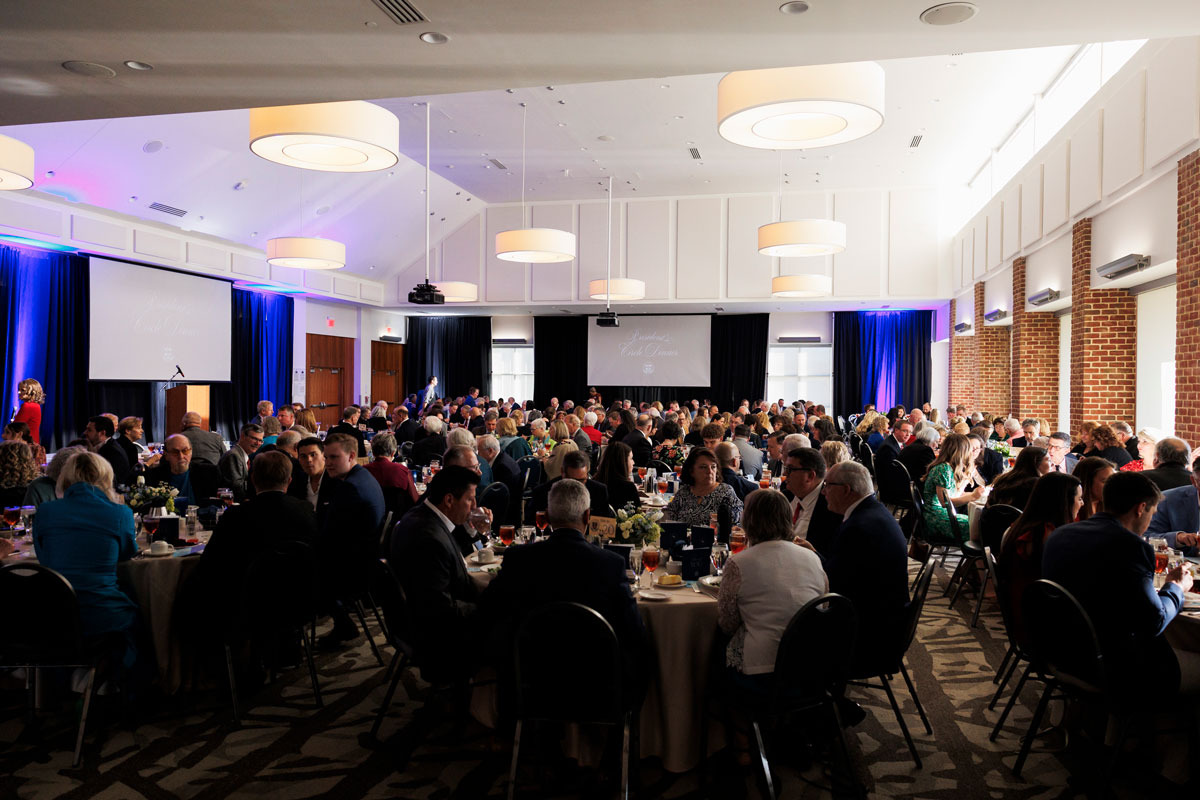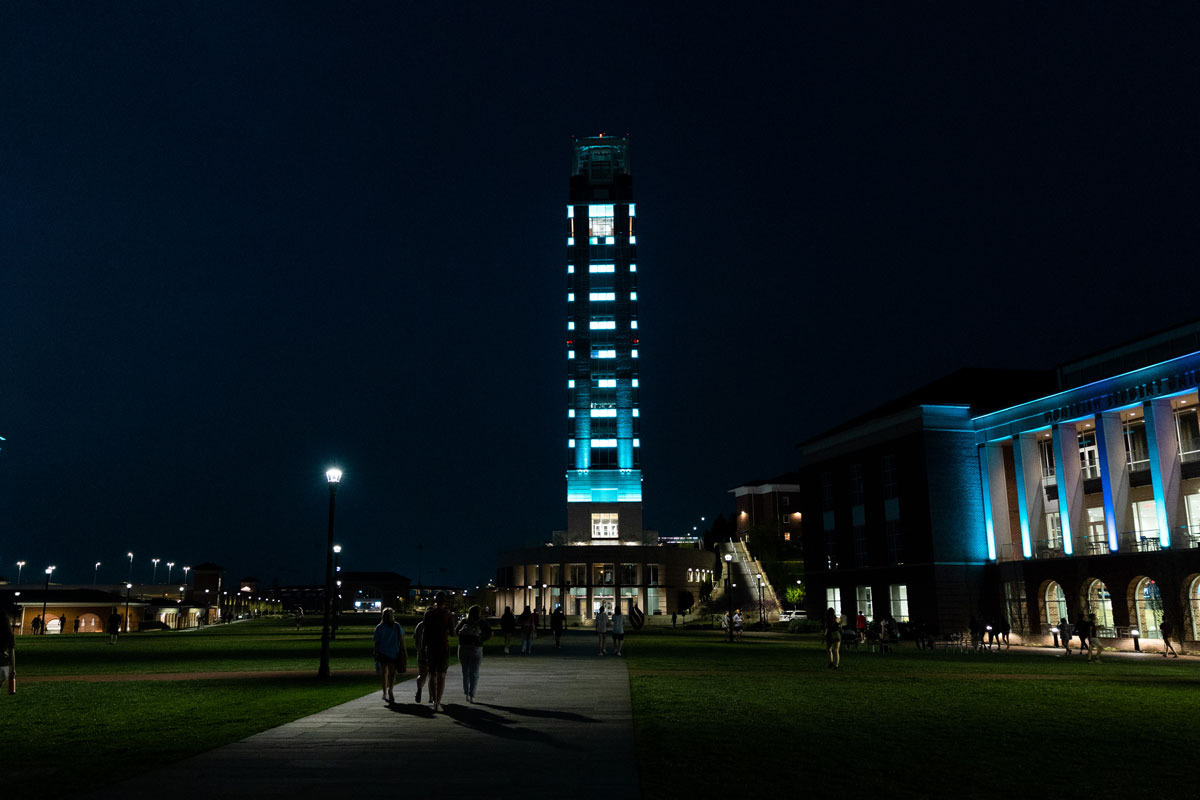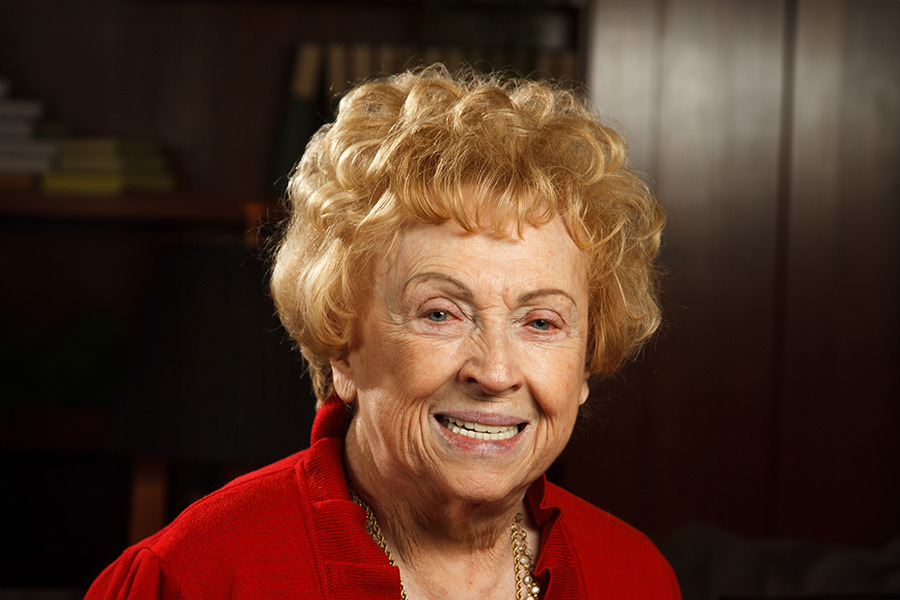Search News Archives
Filter News Articles
Additional Navigation
Liberty students help rediscover town’s colonial history
November 2, 2018 : By Office of Communications & Public Engagement
 As work continues at two Liberty University-owned historical properties in the nearby community of New London, students are helping to bring the region’s forgotten history to life.
As work continues at two Liberty University-owned historical properties in the nearby community of New London, students are helping to bring the region’s forgotten history to life.
The historic town of New London, located 15 minutes from campus, is home to Mead’s Tavern, considered the oldest structure in the Lynchburg region. The university purchased the tavern in 2015 and restoration plans are underway. Through several public history courses offered under Liberty’s Department of History, and in conjunction with the nonprofit group Friends of New London, students have been assisting historical archaeologists and conducting research. Last weekend, students showcased the town’s history during the annual New London Day festival.
“I was surprised at the number of people who came in and said, ‘I’ve lived down the road my entire life and didn’t know this was here,’” said senior history student Emily Parrow, who spoke with guests during tours of the tavern. “There isn’t a lot that’s known about this building. It’s not like several people have written books about it. As students, we’re getting the chance to literally start at the ground floor and go from there to learn things about this property.”
Situated on the edge of the frontier, the town of New London became a bustling center of activity in colonial Virginia. Thomas Jefferson is said to have predicted that the town would become the “new London,” one of the most prominent places in America. Along with Jefferson, it is believed that other well-known historical figures paid the town a visit, including Daniel Boone, Patrick Henry, General Nathaniel Greene, the Marquise de Lafayette, George Rogers Clark, and Robert Morris (a signer of the Declaration of Independence). When the county seat was relocated in 1781, the town began to decline, and today its historical importance is nearly forgotten.
 Mead’s Tavern, built in 1763, was originally an ordinary that provided meals and a night’s stay to travelers. It was converted to a girls’ school in the 1810s and subsequently housed a doctor’s office, an insurance office, and a Presbyterian parsonage.
Mead’s Tavern, built in 1763, was originally an ordinary that provided meals and a night’s stay to travelers. It was converted to a girls’ school in the 1810s and subsequently housed a doctor’s office, an insurance office, and a Presbyterian parsonage.
Master of Arts in Teaching student Rachel Gilbert is enrolled in the public history course, which is open to students from all disciplines. She said she used recent studies from architectural historians and archaeologists to research and write her own 20-minute tour.
“I’ve never given a tour before, but it was challenging and fun,” she said.
Senior history student Ashley Lamoureux displayed cases of artifacts that have been discovered at the site, including buttons, pottery, and a key. She led children in a pretend excavation to find a marble, which was also one of the items found there. Lamoureux, who plans on pursuing anthropology or museum studies for graduate school, said the site has turned into an off-campus laboratory to study history.
 “It’s such a wonderful and invaluable experience to be able to present to future employers and potential internships,” she said, “to be able to say, ‘This is the course I took, this is what I was able to experience.’”
“It’s such a wonderful and invaluable experience to be able to present to future employers and potential internships,” she said, “to be able to say, ‘This is the course I took, this is what I was able to experience.’”
This year’s New London Day was the first time the public was able to tour the site of the Bedford Alum Springs Hotel. Purchased by the university earlier this year, the hotel first opened as a health resort in 1870. In its heyday, it attracted people from up and down the East Coast and Midwest who came to “take the waters,” bathing and drinking water from the nearby springs, which contained minerals thought to have curative properties for many ailments. The current structure was built in 1913 and is the third version of the hotel (the first and second burned). It has been used as a private residence for 70 years.
“It’s a gorgeous location with very interesting history,” Parrow said. “(The hotel) has lots of potential because there was a very important arsenal that was integral to the Revolutionary War that was somewhere in this area. It’s possible that it could be on the grounds, so when we begin excavation, we might be able to find something really interesting.”
 Senior Marissa Swope, who is studying government and history, led tours through the hotel. She said the entire event gave students invaluable experience in presenting history to the public.
Senior Marissa Swope, who is studying government and history, led tours through the hotel. She said the entire event gave students invaluable experience in presenting history to the public.
“For a lot of history students, this is what they want to do with their lives, so this is great preparation and great experience for their resume.”
Swope said purchasing the 6.4-acre hotel property was “an investment well worth the time.”
“I think it’s important and shows the character of the university, that they are interested in preserving these institutions,” she said.


